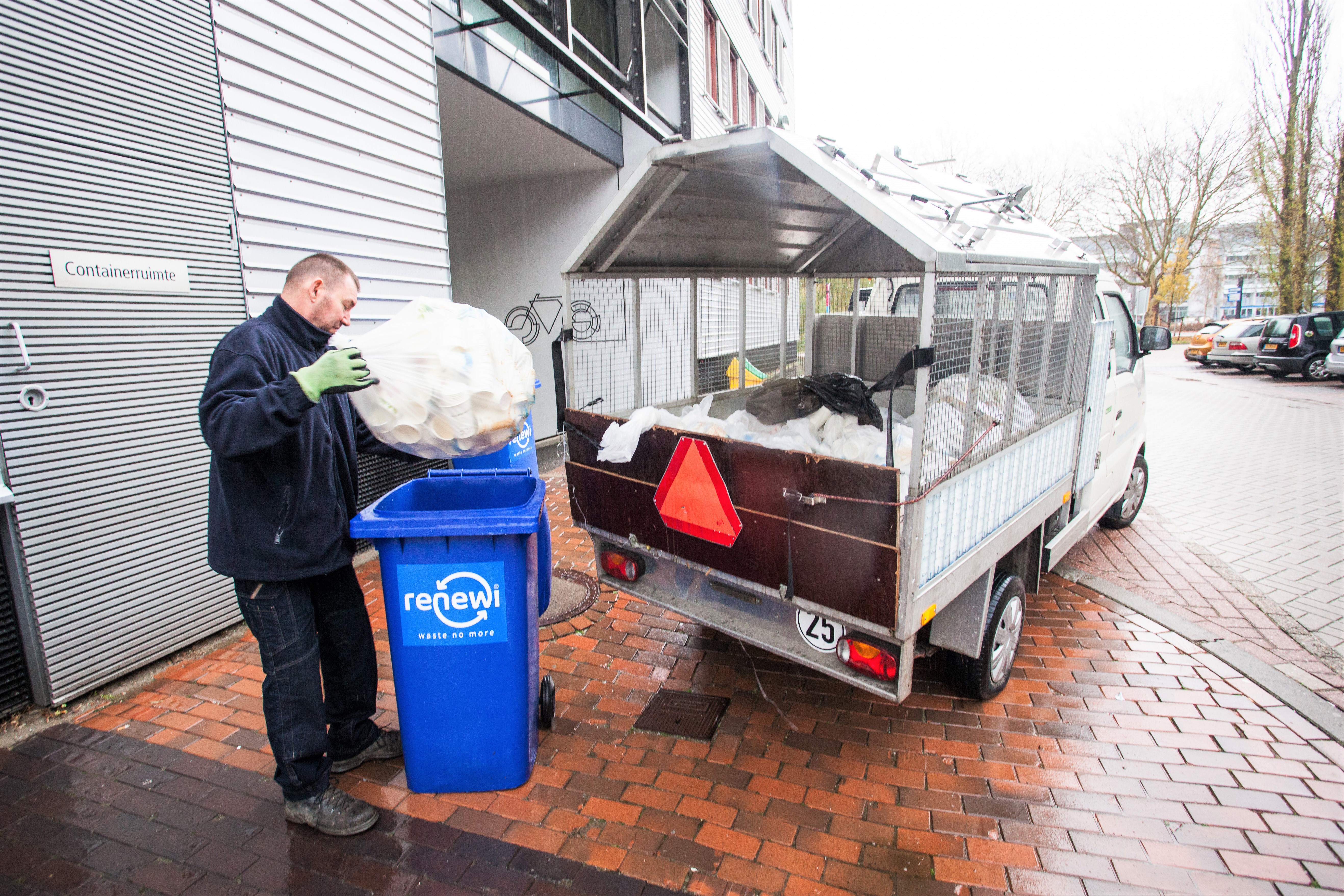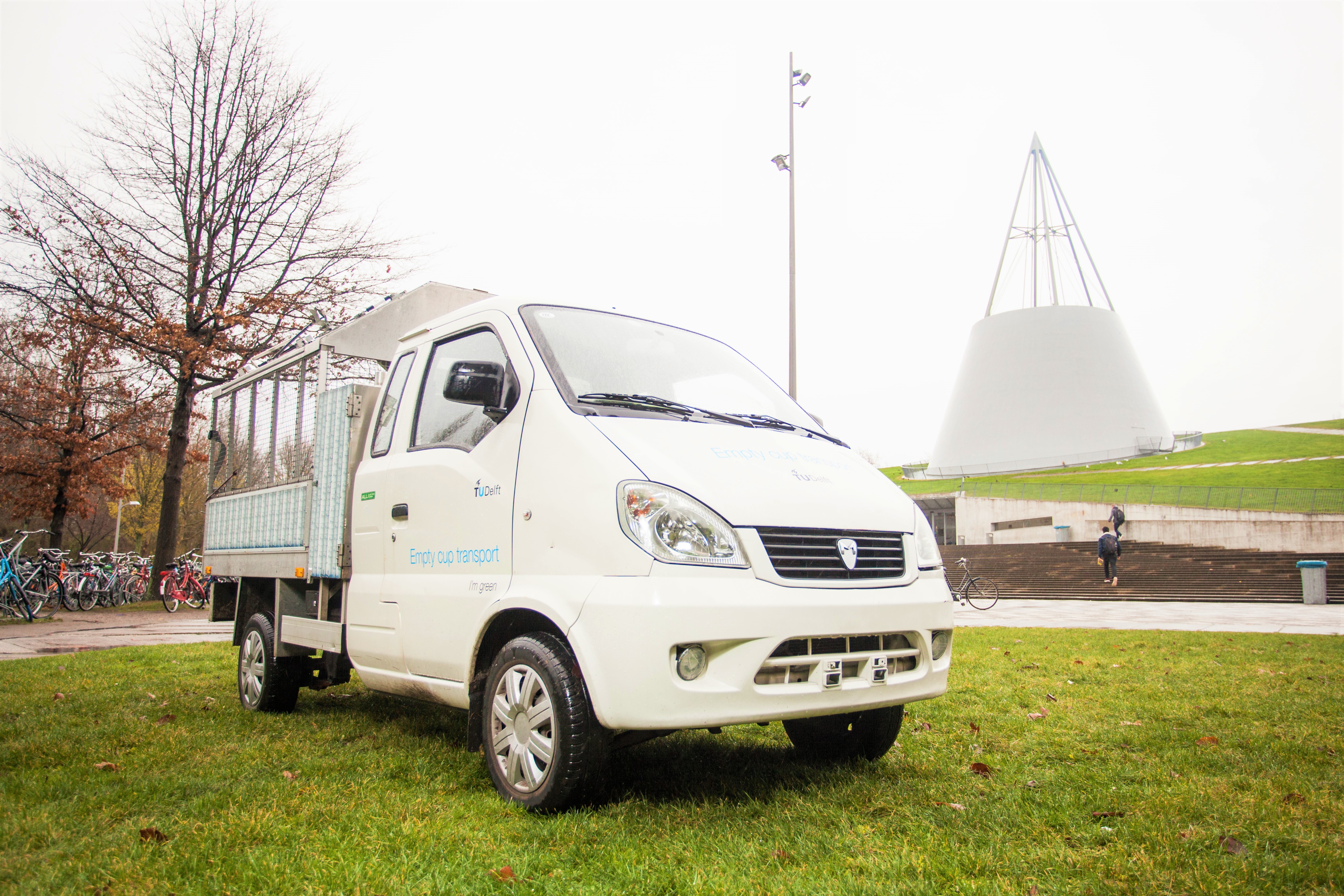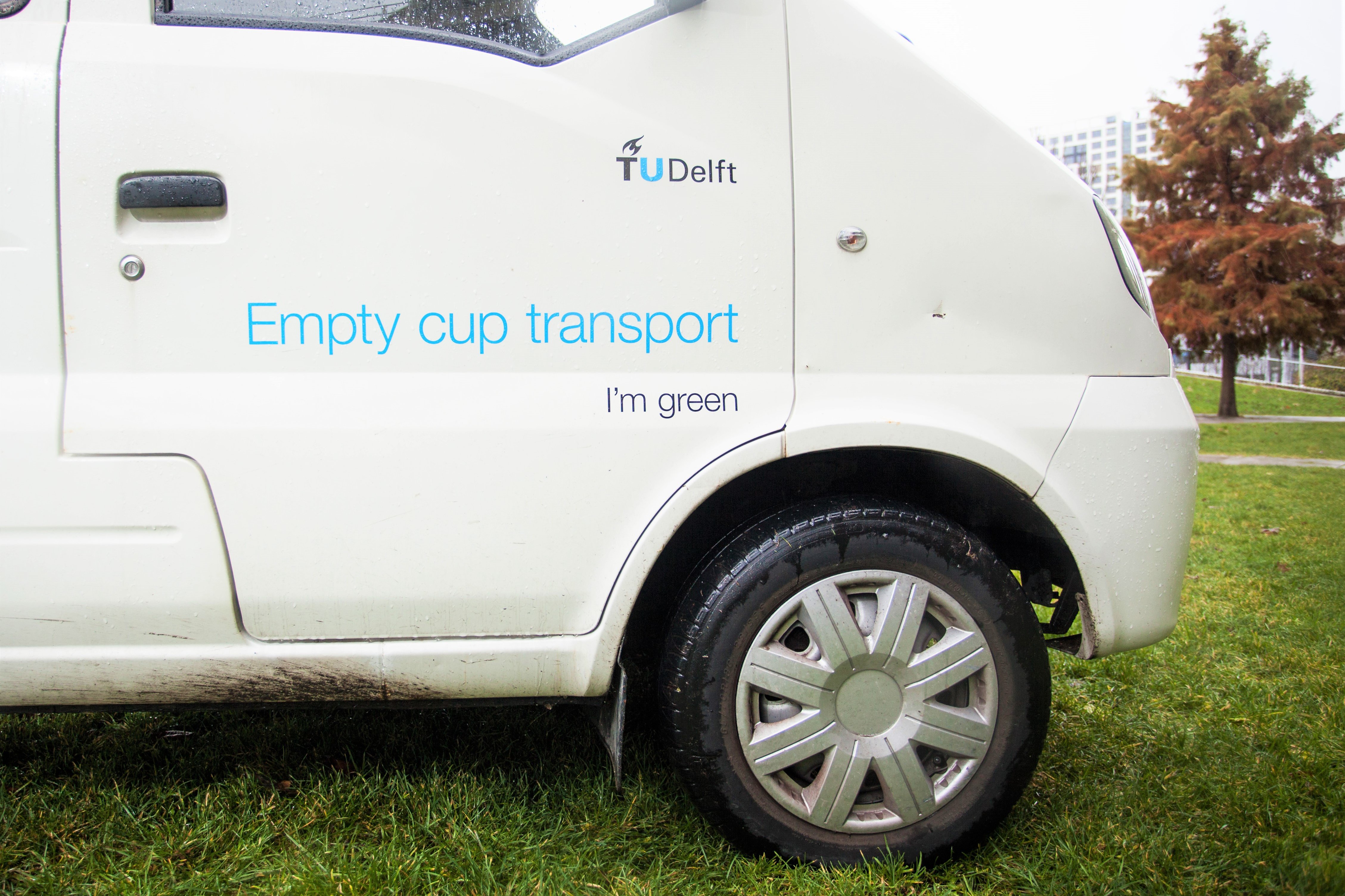CO2 emissions reduced by separating waste
Your coffee cups become toilet paper
Let’s be honest, in the great scheme of things, the environmental impact of TU Delft’s circular coffee cups is limited, but we are still talking about 5 million coffee cups every year. The cups are collected from all lecture rooms, offices, restaurants and coffee corners before being picked up by the Logistics & Refuse Disposal Department. Of course, TU Delft produces other waste on campus, not just coffee cups: more than 2 million kilogrammes of it every year.
It goes without saying that the collection of 5 million circular coffee cups starts with staff and students. Coffee finished? Throw the cup into one of the special cup bins. There are some 600 such bins spread over the whole campus. The bins are emptied into transparent bags, which are put into special on-site waste containers. The bags are transparent to make it easy to check what they contain, because other things – such as bottles, teabags and stirring sticks – are often thrown into the cup bins. If a bag contains too much aside from cups, it is rejected and sent to the general waste. Every Thursday, the electrically-powered Empty Cup Transport carts travel around campus to empty the special containers before the collected cups are deposited in the 500-litre wheelie bins. Renewi, the company in charge of waste collection from TU Delft, subsequently collects the cups for further processing.
Michiel Faber (Coordinator at Logistics & Refuse Disposal) went on several field trips over the past year to see with his own eyes how the coffee cups are reused. Together with Philippe van der Pal, Process Coordinator at Catering Events & Horeca, he joined Renewi to explore every step of the waste processing chain. Faber: “All the way down to Swalmen in Limburg, where all parts of the cup – the ink, the layer of plastic and cardboard – are separated. The cardboard becomes toilet paper, the plastic is processed into raw materials for the plastic industry and the ink is used in corrugated fibreboard.” You can get an idea of the field trips here.

‘Dirty’
In addition to coffee cups, the Logistics & Refuse Disposal Department also collects less innocuous waste. It is for good reason that their site is secured by a large fence, and that smoking is strictly prohibited. You see, this is where Faber and his colleagues temporarily store all sorts of dangerous and combustible materials. Such as mercury waste, fly ash and nitric acid, resulting from research conducted on campus. There’s also a large round steel barrel on the grounds, with the word ‘Dirty’ painted on it in large letters. In a shed, there are boxes full of batteries and dozens of full glass bottles, all awaiting processing by staff wearing special suits with oxygen masks, ensuring that the air they breathe is constantly filtered. In 2017, more than 83,000 kilogrammes of combustible, corrosive and acidic waste was separated, strained and poured into bulk containers or barrels and prepared for removal and further processing.
13 waste flows and the rest
There are a total of 13 different waste flows at TU Delft, all of which are separately collected and processed. Paper, biodegradable waste, wood and metal, for example. But also rubble, building and demolition waste, and organic waste from the catering facilities.
General waste accounts for 46% of all waste produced at TU Delft. At many universities, general waste accounts for more than 50% of all waste flows. So in this regard, TU Delft is not doing at all badly. But there is still room for improvement. Through more efficient separation of plastics and wrappers, for example. “That’s something I do at home”, says Michiel Faber. “At a large organisation like TU Delft, it is not staff and students’ sandwich bags that are the primary issue, though, rather the bulk packaging.”
Expense or the environment?
A dilemma linked to waste separation is how to balance economic and environmental benefits. A new waste flow has to be collected separately. That results in additional costs. And additional journeys, which impact the environment. These can cancel out the environmental benefits of burning less general waste. The decision to create a new, separate waste flow is therefore not taken lightly.

Reducing CO₂ emissions
All this separated waste means that TU Delft prevents a total of 378,090 kilos of CO2 emissions (2018). That is the equivalent of travelling 1,890,449 km in a diesel car, for example, or charging 50,664 tablets for a whole year.

Ambition wanted!
In 2018, 53% of created waste was collected separately and more than 80% of the coffee cups were recycled (more than 3.6 million of the total of 4.5 million used cups). Michiel Faber is dedicated to raising these percentages every year. And therefore to reducing the amount of general waste and the corresponding CO2 emissions created by burning this waste. It takes a lot of time and effort to create awareness and encourage people to improve their waste separation efforts.
